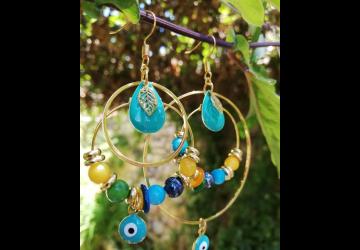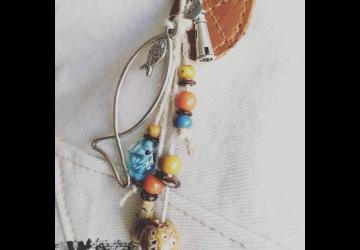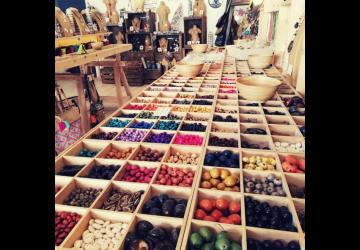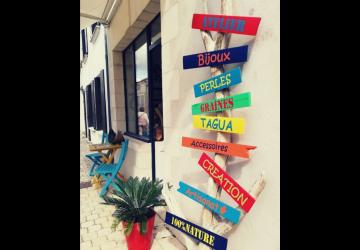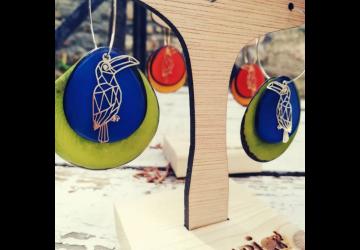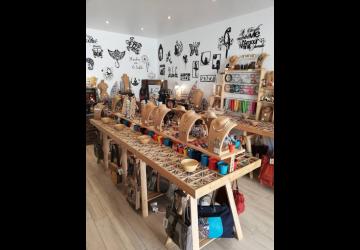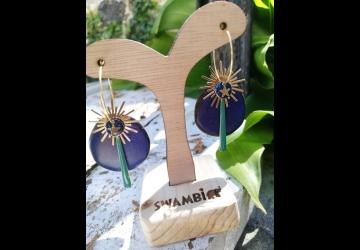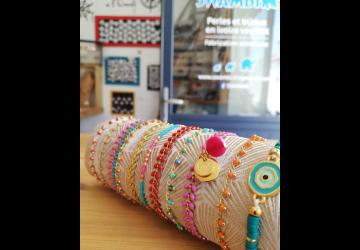Swambi
Descriptif
Trophée de l'artisanat Charente Maritime 2010. Creation & manufacture of plant ivory jewelry. Retail sales of pearls and accessories.
What is vegetable ivory? This seed comes from a palm tree. It is found in the heart of the Amazon rainforest in Ecuador, Colombia and Peru. Seeds have a hard shell that peels off, and a second shell that sticks to the seed. Sanding down the latter produces the ball of vegetable ivory known as Tagua or Corozo. The seeds are then cut into pieces and dyed in the mass. The result is a multitude of brightly-colored, tangy pearls. Each year, the trees produce around 20 kg of seeds, sometimes much more. That's about the weight of the tusks recovered from a 6-tonne elephant...
Plant ivory is not only an alternative to the slaughter of elephants, but also a means of combating deforestation, by providing a source of income for local populations.
A tagua bead is unique; nature doesn't make two identical seeds, so how can you compare them with industrial plastic beads!
Characteristics
Contact
Your data is used exclusively by us to distribute our Information. They are neither shared nor sold to third parties. In conformity with the European and French laws in force, notable law no. 78-17 of 6 January 1978 on Computers, files and liberties, the Tourism Office informs you that you have the general right of access, correction and removal of the entirety of your personal information which we possess. You can exercise your right by contacting: L'Office de Tourisme de l'Ile d'Oléron et du Bassin de Marennes - 22 rue Dubois Meynardie 17320 Marennes, tel: +33 (0) 5 46 85 65 23, fax : +33 (0) 5 46 85 68 96
